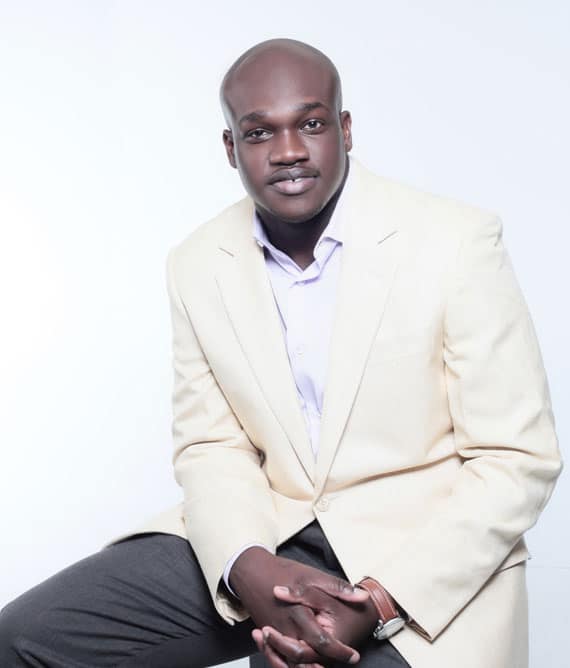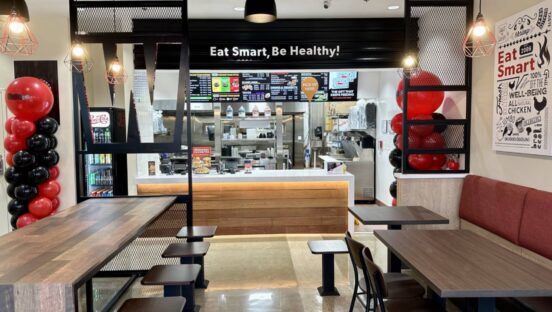As a black man living in America, Edible Brands president Cheikh Mboup has spent the past week sorting through a spectrum of emotions.
Eight days ago, Mboup and the rest of the country watched in horror as a video showed then-Minneapolis police officer Derek Chauvin pressing his knee against the neck of George Floyd, a black man, despite his repeated plea, “I can’t breathe.” Chauvin was later fired from the police department and charged with third-degree murder and manslaughter. According to the criminal complaint, Chauvin remained on Floyd’s neck for 8 minutes and 46 seconds. Three other officers—Thomas Lane, Tou Thao, and J. Alexander Kueng—were also fired for their involvement.
The vivid brutality initiated numerous protests from coast to coast, full of people denouncing racial injustice and demanding action.
Mboup says the wave of feelings, from anger to sadness, leads into one next step—how do you solve it?
“When you first feel a pain, it’s natural to go through the natural path of pain itself—to transition to various platforms of emotions,” Mboup says. “But at the end, you find yourself going back to one common denominator: How do you cure this? How do you fix this? How do you eliminate the level of brutality to ever take place, and how do you make sure the generations that we bring in this world never think that that’s OK? I think that I’m getting to that third stage. I’m not there yet, but I’m getting there.”
READ MORE: How Edible pivoted to serve customers during COVID-19
His office is based in Atlanta, which was host to a multitude of protests—and in some cases, escalated violence—that received national attention.
Mboup believes leaders in the city are responding to the best of their ability. He notes when you’re dealing with an angry crowd, your title becomes insignificant.
He points to a viral speech by Atlanta Mayor Keisha Bottoms in which she sheds her political title and prioritizes her role as a mother. He remembers how she referenced her 18-year-old son and condemned destruction and brutality in the community.
That type of communication is required to reach the next step in the healing process, Mboup says. It’s the same message he’s conveying to his own company.
“The intent there is not to understand what they’re going through, because a mother who’s had these conversations with a young man who’s 18, you cannot feel what palpates in her heart because you’re not a mother,” Mboup says. “So you can only attempt to at least listen. And vice versa, a young man who’s 20 or 25 or daughter of a police officer or a mother of a police officer. There are sensitive elements that they feel that one could only attempt to understand, but will be misled if they say they understand. The result of that, is just a conversation piece—opening the dialogue.”
“Usually, in offices, there’s this unwritten rule of don’t talk about politics and race and religion,” he adds. “… I’ve decided to put all that aside. We will talk about it in this building. Because what we are feeling, it has nothing to do with my opinion with politics. It’s deeper than that. It is the idea of when a nation like ours decides to tackle any topic whatsoever, and we authentically tackle that topic, we have a great record of being successful in any of those topics.”
Mboup doesn’t go far back to find an example. In fact, he recalls mid-March when COVID-19 began to feel like a reality to all Americans. He says the nation has done a great job of uplifting one another in terms of using the right platform to communicate and determining how to sustain business in the face of a crisis.
“When you combine all those, it is a testament to what happens when this nation mobilizes on a topic,” Mboup says.
Sunday in particular provided a powerful moment for him. As he sat with his wife, he replayed their thoughts, and realized the personal responsibility he holds as a black leader.
To him, it’s not a matter of what should he do that’s so well-crafted. This means tossing aside diplomacy and perfection. He views his responsibility as ensuring the topics of brutality and racial injustice are no longer taboo in his office. If there’s any form of discrimination felt in any institution, Mboup’s hope is that individuals would feel comfortable talking to someone.
Mboup says companies should create a space where coworkers can have these conversations. But it’s not about finding a scapegoat. Instead, it’s about getting to the root cause, taking responsibility, and curing the issue so the next generation is no longer subjected to videos like what transpired in Minneapolis on Memorial Day.
Everyone—the firefighter, police officer, nurse, and the homeless man—must be invited to the conversation.
“I think that conversation starts one office at a time,” Mboup says. “That conversation starts at a hangout at a time. That conversation starts at a school classroom at a time. That conversation starts at groups of three, four together at a time. But it must be had. I felt the need for me, personally, to foster an environment where the taboo is out the door and let’s just talk through it. Let’s just have a conversation of what we can do. Not what the rest of the world can do about it. What can we do about it, and if we can, as a company of our size, being in over 75 percent of the U.S. livable zip codes, having over 1,000 stores all franchise owned, I think that we can have an answer that would be a start for us. And at that time, we’ll pray that the rest of the country, a company at a time, a group at a time, does something similar, which is the idea of constituting the right answer. The idea of doing something—taking some level of action.”







